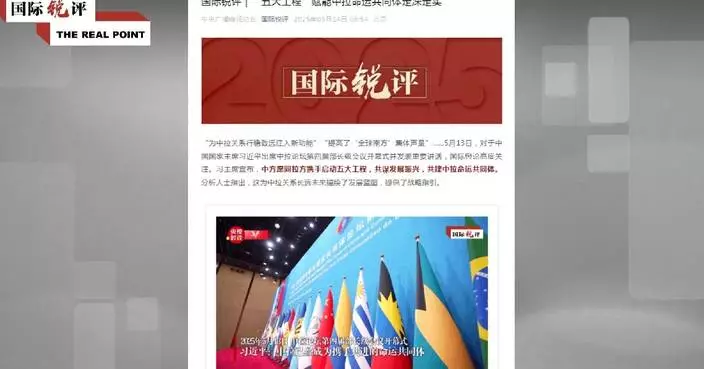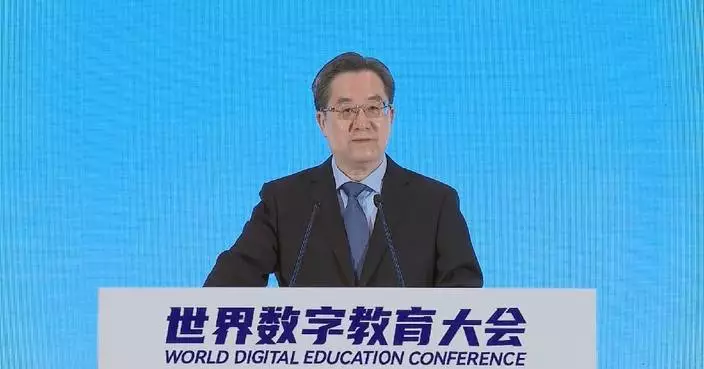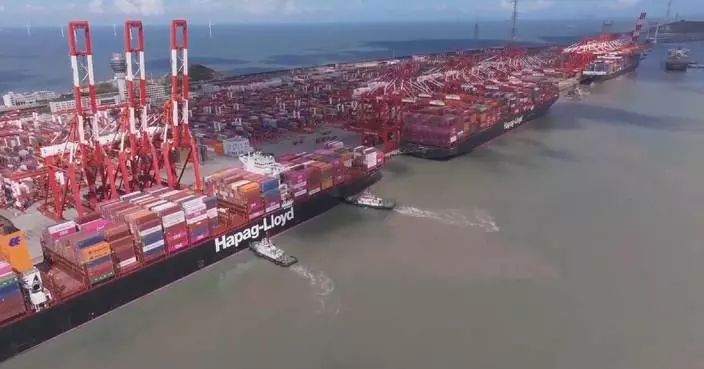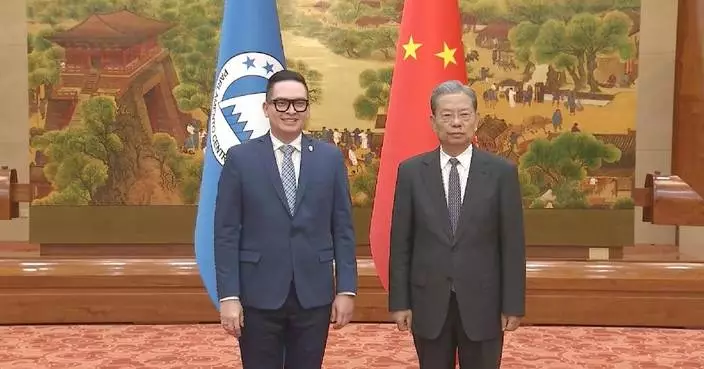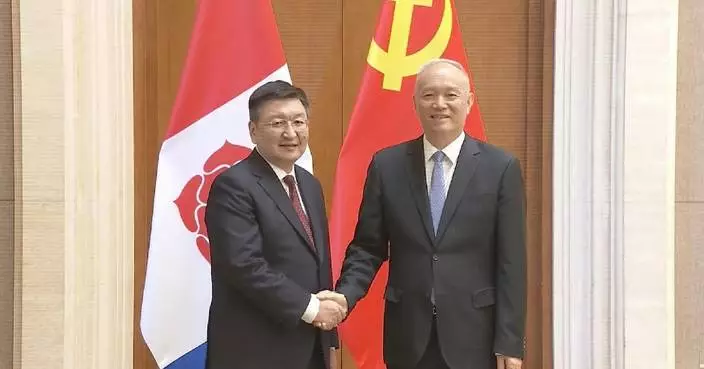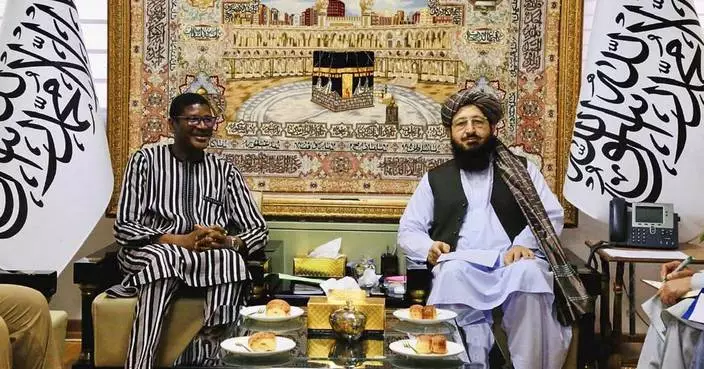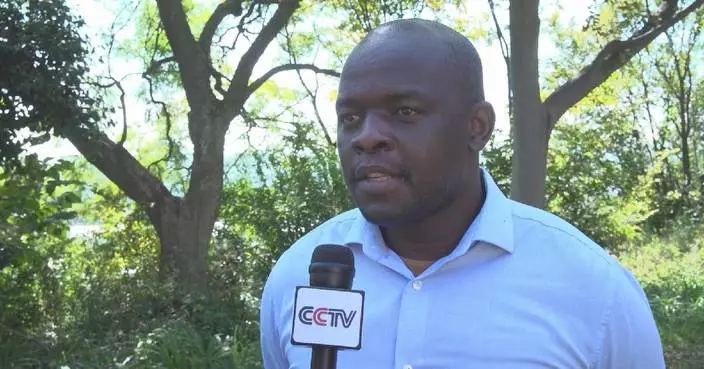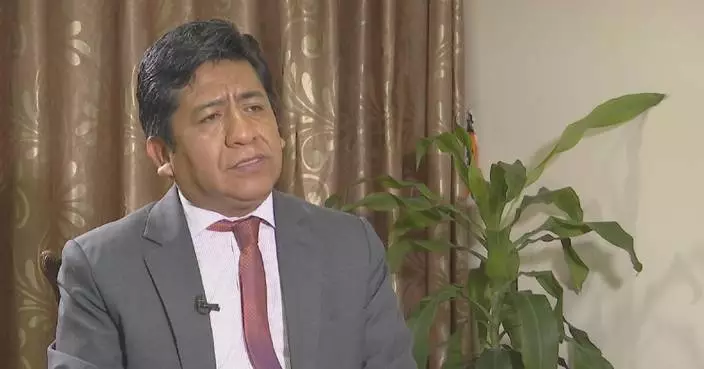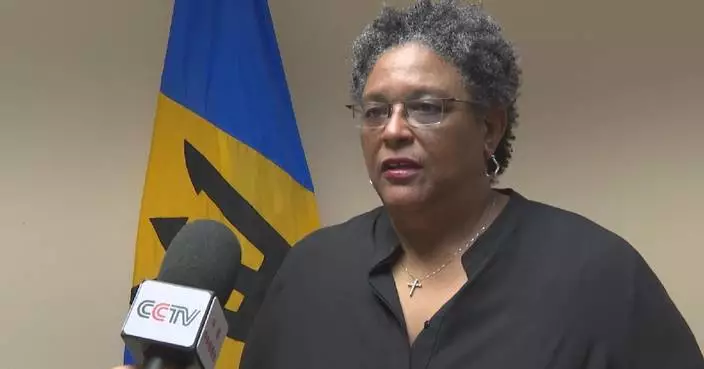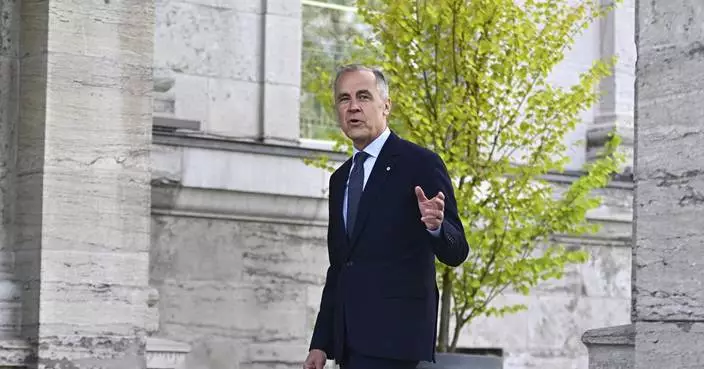People across various sectors have renewed their determination to forge a brighter future for China's modernization after hearing President Xi Jinping's New Year message on Tuesday.
On New Year's eve, Chinese President Xi Jinping delivered his 2025 New Year message through China Media Group and the Internet. In his speech, he recognized individual efforts in China's modernization journey.
"Dreams and wishes may be far, but they can be fulfilled with dedicated pursuit. On the new journey of Chinese modernization, everyone is a key actor, every effort counts, and every ray of light shines," he said.
People engaged in the construction of China's major projects have reaffirmed their commitment to working hard and deeply understood the importance of their work in opening up broader prospects for China's modernization.
"In the new year, we will continue to exemplify the leading role of model workers and craftsmen, fulfilling our dreams through diligent, honest, and creative work, and contributing to building a world-class seaport," said Xu Zhenchao, a recipient of the title of People's Craftsman and senior manager at the Qianwan Container Terminal of Qingdao Port in east China.
"Over 20,000 builders are making efforts to strive for connectivity and maritime prosperity. In the new year, we will advance the construction of the Pinglu Canal with high standards, quality, and efficiency, ensuring its completion in 2026," said Wang Xianzhang, an official of Pinglu Canal Project in south China's Guangxi Zhuang Autonomous Region.
The Pinglu Canal is a flagship project on the New International Land-Sea Trade Corridor, an important trade and logistics passage jointly built by provincial-level regions in western China and ASEAN members.
Government officials also expressed their commitment to fostering high-quality economic development and cultivating new quality productive forces.
"The President Xi's New Year message provides strong spiritual motivation and guidance for our grassroots work. We will continue to optimize the business environment with greater enthusiasm, a more pragmatic approach, and stronger measures, stimulating market vitality and social creativity to promote high-quality economic development," said Chen Ze, deputy director of Zhongguan Town Economic Development Office, Deqing County in east China's Zhejiang Province.
"We will develop new quality productive forces in light of actual conditions, consolidates the advantages of high-end industrial clusters such as artificial intelligence, and instill unceasing dynamism of innovation into the modernization process," said Li Junjie, mayor of Beijing's Haidian District.
In his speech, President Xi reaffirmed his commitment to the policy of "one country, two systems", emphasizing its importance for the long-term prosperity and stability of Hong Kong and Macao.
Representatives from both Special Administrative Regions expressed confidence in a brighter future, inspired by President Xi's encouraging words.
"The bright prospects presented by China's modernization are incredibly inspiring and moving. With the firm support of our great motherland and the guidance of the 'one country, two systems' policy, we are full of confidence in the future. The 'Pearl of the Orient' will shine even brighter," said Zhang Zuojiao, member of 14th Chinese People's Political Consultative Conference (CPPCC) National Committee.
"We firmly believe that with the strong support of our motherland and the safeguard of 'one country, two systems' policy, Macao will continue to leverage its unique advantages and integrate into the overall national development," said Grace Wong Kit-cheng, member of the Legislative Assembly of Macao.

Xi's New Year address inspires renewed dedication to China's modernization




